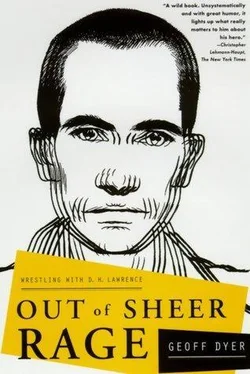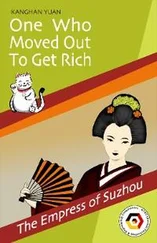Fortunately a friend of that friend was flying from Paris to Rome and he agreed to pick up my copy. We met at the San Calisto, I bought him a coffee and he handed over the book. Simple as that. It was not just a good feeling, being reunited with my copy of The Complete Poems on the night before we were flying to Alonissos: it was an omen, a clear sign that I was meant to start my study of Lawrence that summer.
After retrieving The Complete Poems , Laura and I headed home to pack. With all the books by and about Lawrence my luggage was incredibly heavy. Not just inconveniently so but excess baggagely so. I took out a few books that I didn’t need, which I had only packed because they were thin — Mornings in Mexico, Apocalypse — but these were so light as to make no difference and I put them back in the bag I had just taken them out of. I looked at the copy of The Complete Poems and felt suddenly sure that if I took it to Alonissos it would lie unopened for six weeks just as it had lain unopened in Paris for two months; but if I didn’t take it to Alonissos I was equally sure that, once I was there, in Alonissos, I would decide that it was indispensable and that, without it, I would be unable even to start my book on Lawrence. If I take it I won’t need it; if I don’t take it I will not be able to get by without it, I said to myself as I packed and unpacked my bag, putting in my copy of The Complete Poems and taking it out again. After a while I decided to leave The Complete Poems and pack the Penguin edition of the Selected Poems but that was a ludicrous compromise since the defining characteristic of the Selected Poems was that it contained none of the poems I needed, the ‘Last Poems’, principally, ‘The Ship of Death’ in particular. It was a straight choice — either the immense bulk of The Complete Poems or nothing — and, once I recognised that the real issue had nothing to do with whether or not I would need to refer to The Complete Poems, a very simple one. The value of The Complete Poems was talismanic: if I had it with me I would be able to begin my book; if I didn’t have it with me then, even if I did not need to refer to it, I would keep thinking that I did and would be unable to begin my book about Lawrence. Put like that The Complete Poems was an essential part of my luggage. I had no choice but to bring it with me; whether I referred to it or not was entirely irrelevant. With that I put The Complete Poems on the top of the pile of essential books by and about Lawrence, pulled my rucksack’s cord sphincter as tight as possible, and propped it by the door, ready for our departure first thing in the morning.
In the morning, before setting off, I took out my copy of The Complete Poems and left for Greece without it.
Another good decision, as it turned out. I didn’t need The Complete Poems because once we were installed on Alonissos I had no impulse to begin my study of D. H. Lawrence anyway. It was not the availability or non-availability of books that was the problem, it was Alonissos itself. We always have this ideal image of being on an island but actually being on an island always turns out to be hellish. For what it is worth, Lawrence wasn’t too keen on islands either. ‘I don’t care for islands, especially very small ones,’ he decided on Île de Port Cros. A week later, as if, first time around, he had simply been trying out an opinion, and had now made up his mind, he announced, definitively: ‘I don’t like little islands.’
Me neither. All you can think of when you are on a small island is the impossibility of leaving when you want to, either because the island you are on is too big and you want to go to a smaller one or because the island is too small and you want to go to a bigger one. When we arrived at Alonissos on the Flying Dolphin the island seemed so beautiful that six weeks did not seem long enough to enjoy it to the full. Hervé’s house had a lovely large terrace with a perfect view of sea and sky, the kind of view you see in posters advertising holidays on idyllic Greek islands.
‘This is paradise,’ I said to Laura, sitting on the terrace, surrounded by sea and sky. ‘I wish we were going to be here for six months.’ Then, after a week, even a fortnight seemed intolerable. Except for looking at the brochure-blue sea and sky — which, after the first couple of days, we scarcely even noticed — there was nothing to do and for that reason it was impossible to get any work done. The best circumstances for writing, I realised within days of arriving on Alonissos, were those in which the world was constantly knocking at your door; in such circumstances the work you were engaged in generated a kind of pressure, a force to keep the world at bay. Whereas here, on Alonissos, there was nothing to keep at bay, there was no incentive to generate any pressure within the work, and so the surrounding emptiness invaded and dissipated, overwhelmed you with inertia. All you could do was look at the sea and sky and after a couple of days you could scarcely be bothered to do that.
There was no use blaming my inability to get started on having left my copy of The Complete Poems in Rome because I had it beside me in Alonissos. Yes. At the last possible moment, with the taxi rumbling downstairs, I had dashed back up, retrieved my copy and lugged it all the way to Alonissos where, exactly as predicted, it lay unopened by our bed. Instead I found myself reading one of the books Hervé had brought along, a volume of Rilke’s letters.
‘ Il faut travailler, rien que travailler .’ Rilke had gone to Paris in 1902 to write a monograph on Rodin and this exhortation of the sculptor’s had a transforming effect on the twenty-seven-year-old poet. In letter after letter he repeated Rodin’s mantra-like injunction. Immerse yourself in your work: let life fall away, dedicate yourself to the great work. Il faut travailler, rien que travailler .
I found myself repeating it the way Rilke did, trying it out, enjoying the simplicity and faithfulness of the formula, luxuriating in it like a hot bath. Dwelling on it like this, however, was an evasion of work, just as my reading of a hefty volume of Rilke’s letters was an indulgence. I should have been working on my study of D. H. Lawrence and instead I was idling over Rodin’s words. Il faut travailler, rien que travailler . I should be writing my book about D. H. Lawrence, I said to myself, everything else should be subordinate to that — but who can tell where that task begins and ends? Some huge benefit may yet accrue from reading Rilke’s letters. The more I read, in fact, the more convinced I became that a better understanding of Rilke was crucial to my understanding of Lawrence. Had I gone to Alonissos to write a book about Rilke then I would, almost certainly, have been sitting on Hervé’s terrace reading books by Lawrence; as it was, the fact that I was meant to be starting my study of D. H. Lawrence meant that I was sitting there reading the letters of Rilke who, though he was seduced by and persuaded of the truth of Rodin’s exhortation to do nothing but work, found it difficult to submit to it in practice: ‘Already I am wavering in my absolute determination to shut myself up daily, wherever I am and in whatever external circumstances, for so-and-so-many hours for my work’s sake.’ He also wavered about whether work and idleness could be so easily counterposed:
I have often asked myself whether those days on which we are forced to be indolent are not just the ones we pass in profoundest activity? Whether all our doing, when it comes later, is not only the last reverberation of a great movement which takes place in us on those days of inaction. .
Читать дальше












